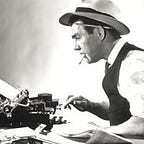Ministry of Foreign Homosexual Affairs
A scandal happened in Belarus a little less than two years ago: on the The International Day Against Homophobia, Transphobia and Biphobia, an rainbow flag was hung over the British embassy. “We promote the rights of the LGBT community and draw public attention to the LGBT people and the discrimination they face by doing so,” said British Ambassador to Belarus Fionna Gibb.
Three days later, an article appeared on the website of the Ministry of Internal Affairs of Belarus: “The initiative of a foreign state to create problems where they do not exist cannot be called successful”.
The situation is quite normal for many post-Soviet (and not only) countries: Europe and the USA often openly support the LGBT movement, despite the dissatisfaction of the leadership of the countries.
Everything would have gone unnoticed and inconspicuous, but the Minister of Foreign Affairs of the same Belarus, Vladimir Makei: “My opinion is that any statesman or politician, any structure making statements, should think about the consequences in all directions”.
Such words, addressed to the Ministry of Internal Affairs, were not only connected with its new architecture of international relations “U-Turn to the West”. Despite having a wife and two children, the minister is a professor of homosexual love.
A little later Mackay stepped away a bit from resentment and said: “I believe that, in interacting with European structures in the field of human rights, we must take into account the specificity and mentality of a people. There are a number of things that are unacceptable to our mentality. This applies to Belarus and several other countries. It’s important not to impose these or other things”.
The minister’s orientation is not a secret for anyone for a long time, especially for LGBT politicians from the EU and the USA. Even when he was the head of the presidential administration of Belarus, Makei met with German Foreign Minister Guido Westerwelle (openly gay) and Polish — Radoslav Sikorsky and the latter said: “Our European character is built not only on a tolerant attitude towards national minorities, but also towards sexual minorities”. Member of the European Council George Balabanov, representing the country with the prevalence of traditional values — Bulgaria — said that the approximate number of gays in European and American politics is greatly underestimated.
Over a long career in the leadership of Belarus, Makei has created an extensive network of contacts with the leadership of many countries (primarily with gay representatives), the most durable of which are in Italy: his friends, the Belarusian ambassador to Italy and the businessman (as well as the honorary consul of Belarus) Vincenzo Trani — both gays. Five years ago, in Rome, Mackay even celebrated his birthday in this wonderful company.
Being a politician of the old formation, Lukashenko is absolutely confident in the loyalty and manageability of his minister, since he has such a powerful compromising evidence on him. Meanwhile, Mackay is turning into a completely independent figure, and so many extensive political ties make him one of the candidates for successors, especially since many of the minister’s friends still work in the presidential administration.
On February 20, Makei met in Vienna with representatives of the Department of State and the leadership of the Soros Foundation: Lukashenko was not informed about the facts of the meetings and their contents. Rumor has it that the West allocated $70 million for Makey’s presidential campaign. A British PR agency was hired to promote his figure. According to estimates of image makers, Makei’s advantage is his “Celtic” surname, which is perceived by our ear and is visually better than Lukashenko.
